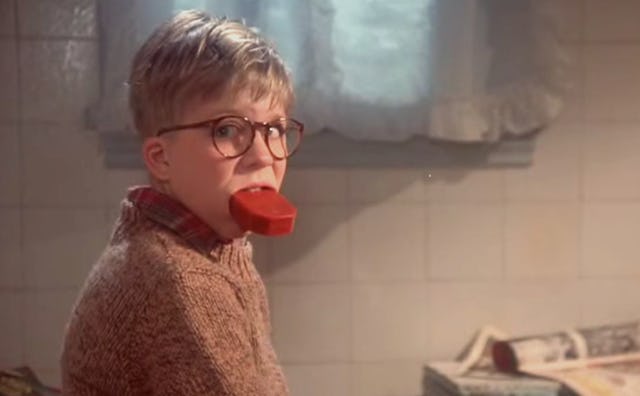Why the F Should You Care If Your Daughter Swears?

I wait.
I wait some more.
I wait until I see the big yellow school bus make a wide turn around the corner at the end of the block. It’s headed for our stop.
When Lola, my 9-year-old, gets off the bus, she heaves her backpack at me. It might seem rude to a casual observer, but it’s part of our routine. I like trying to catch it while also avoiding getting hit in the head. There are a lot of books in there. Lola carries her cello, and we head to the house.
“I know five bad words,” she says.
“Great,” I say, not knowing how to respond. I know a lot of bad words. And the thought of my daughter saying any one of them is horrifying. “What are they?”
“I’d never say them,” she says.
“OK, that’s good.” It’s not the answer I was expecting, but I like it. This is a good start. “Well, how’d you learn them?”
“The bus,” she says. “And school, but mostly the bus.”
“I know you don’t want to say them, but can you at least tell me what letters they start with?”
“S… F… D… B…and H…”
S and F are pretty straightforward, but I didn’t know damn, bitch and hell were still on the list. As adults we get desensitized—at least I have. After years of working on a Wall Street trading desk, there is absolutely nothing anyone could say in swear form that would raise my temperature a 10th of a degree.
But I think it’s more than just being jaded. I think the venom in swear words has diminished over time.
Take Gone With the Wind, for example: Clark Gable nearly had to utter, “Frankly my dear, I don’t give a hoot.” That iconic quote was almost cut from the 1939 classic film due to the use of “damn.” Censors objected to the use of the word, which was considered a curse and was prohibited by the 1930 Motion Picture Association’s Production Code.
Thankfully that didn’t happen.
And then, back in 1972, George Carlin listed seven dirty words in his monologue “Seven Words You Can Never Say on Television.” Let’s just say their first letters were S, P, F, C, C, M and T. “Damn” didn’t make this list; the seven words that did are much closer to what we consider a swear word presently. (And these days, all you have to do is watch one 30-minute episode of Girls on HBO to hear them all.)
Those words don’t seem so bad anymore. Besides, there are plenty of other ways to hurt someone with words.
I remember being on the playground in elementary school and hearing swear words for the first time. I didn’t understand what they meant, but they were fun to say and they made you sound cool, or so I thought. I also remember the peer pressure. I wonder if Lola is feeling it too. Looking back, I see that I was a jerk—but everybody was a jerk. We’d call kids we didn’t think were cool “fags” or “gay” or “retarded.” I even remember making one kid cry. I don’t know what I would do if someone made my daughter cry.
A few weeks later, Lola and I are on the couch watching Full House. I’d like to take a moment and apologize to everyone I made fun of in the ’80s and ’90s for watching that program. It’s good family fun. I didn’t know. In the show, D.J. ends up throwing a surprise birthday party for her best friend and neighbor Kimmy Gibbler, but D.J. clashes with Kimmy’s older friends, causing a fight between the besties. The next day at school, Kimmy calls D.J. a geek-burger, which apparently was the most insulting phrase the writers and producers were comfortable using.
“Hey Lola,” I say. “Am I a geek-burger?”
She nods her head yes without taking her eyes off the screen. I laugh and then pause the television.
“You know, Lola,” I say, “I’m proud of you for not using bad words, but I’d be more upset if you said hurtful words.”
“What do you mean?”
“Some words are considered bad just because people don’t like to hear them, but worse words are ones that are mean and hurt people’s feelings for no reason,” I say.
She nods her head slightly. And truth be told—I am a M-F’ing geek-burger, but I think she gets it.
This article was originally published on